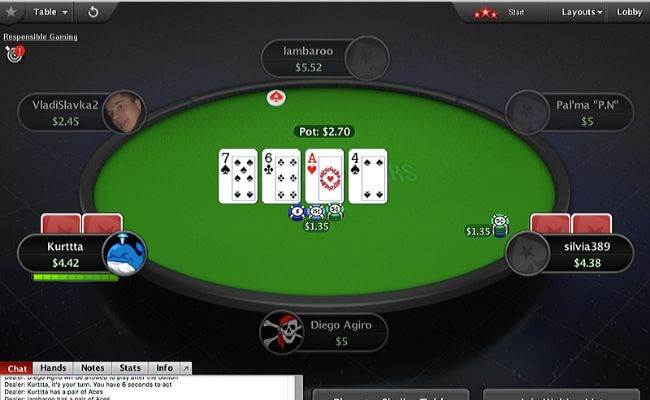Poker How To Win
There are a handful of critical aspects when it comes to learning how to play poker. There’s learning the different poker hands and their ranks as well as learning to call, raise, and fold. But there’s also more to it than just that.


This post tries to capture some of the other aspects of how to play poker, including a few hints about general strategy that might keep you from losing too much money early in your career.
HOW TO WIN AT ONLINE POKER IN 5 STEPS. If you have spent much time playing free online poker, then you know that there are some strategies that separate those at the top of the game from the rest of the playing community. Some people attribute this difference to a sense of instinct, while others attribute it to the benefit of years of playing.
- How to Win at Texas Holdem Poker. Up until the 2000s, seven card stud was the dominant form of poker throughout many parts of the world. But this changed during the poker boom of the mid 2000s, when Texas holdem became the preferred game for every major tournament.
- Click here to claim your FREE tournament report so you can CRUSH the beginning of tournaments.
- The key to being successful at poker is knowing when to fold your hand and accept a smaller loss or when to hold onto it and risk a larger loss for a chance to win the pot. 6 Decide if you want to draw any cards (if the game allows it). Look at your cards and decide if you want to play this hand.
- You win if your opponent folds, but you also win if your hand improves. The classic example is when you’re heads up with someone and you have four cards to a flush on the flop. You have a roughly 1 in 3 chance of making your flush. If you bet aggressively, though, your opponent might fold. You have two ways to win. Poker Strategy Tips for.
How to Find a Good Poker Game
It’s easy enough to find real money online poker, although if you live in the United States, only a limited number of websites will actually allow US players to compete for real money.
If you’re brand new to poker, though, I suggest getting started with the free, play money games on the internet. You’ll learn a lot about how the game goes.
The most important things to pay attention to begin with is what order everything happens in. It’s important to understand this, especially when you switch to live poker.
And I recommend switching to live poker as soon as possible. I got my start playing on the internet, but live poker has charms all its own.
Another option, which is a better option financially, too, is to find a home poker game. Why’s that a better option? Well, you can avoid paying the rake that way.
When you play poker in a casino, the casino has a dealer run the action. The casino also takes 5% of every pot as their “rake.” This is one of the ways they stay in business.
If you’re at a table with players who are equally skilled, you’ll eventually break even over time. But not if 5% of the pot disappears on every hand. To break even in that situation, you have to play better than everyone else.
How do you find a home poker game? Ask around at the office. If you hang out in a bar, ask around there. You can also find message boards on the internet where locals host poker games, but some of them charge a rake. Such games are “underground” games and are probably illegal.
How to Host a Poker Game
Rdr Online Poker How To Win
If you have trouble finding a poker game, you can always host. You’ll need at least five or six players to have a decent home poker game, so you’ll probably need to invite 10 people to get a decent game going.
You’ll also need the proper equipment to host a poker game. Obviously, you’ll need decks of cards. I like to have two decks going, so you can have a deck shuffled at all times. There’ll be no pauses in the game while the deck’s getting shuffled.
I also like to use plastic playing cards rather than ones made of cardstock. You’ll pay more for such a deck, but it should last you forever. Kem is a good brand for this.
You’ll also need a poker table. You can find cheap poker tabletops that you can just put on top of your dining room table online. They’re good enough to start with.

Finally, you need clay chips. These used to be expensive, but they’re not too expensive anymore. Don’t host a game with plastic chips. They’re just lame and lack gravitas. Also, don’t host a poker game with a lot of cash on the table. Have your guests buy chips.

Be sure to let everyone know what variant you’re going to play and for what stakes. It’s okay to host a poker tournament and charge an extra $5 toward the buy-in if you’re going to provide snacks and drinks.
You should, in fact, provide snacks and drinks. Just because it’s a poker game doesn’t mean you shouldn’t be a good host, and a good host offers refreshments to his guests.
Also, check out this blog I wrote on how to deal a home poker game if you need extra help on getting your game started.
How to Bluff in Poker
Since I’ve already written posts about how poker hands and hand rankings work, as well as how betting in poker works, I’m going to skip those subjects and get straight into the subject on most people’s minds—bluffing.
A bluff is when you bet with a hand hoping that everyone else will fold. In that event, you win the pot by default.
A true bluff is a bet where you’re almost certainly have a lower-ranked hand than your opponent. If you think you have a better hand, you’re value betting, not bluffing.
If you don’t play much poker, you might think that bluffing is a bigger part of the game than it actually is. But the truth is, bluffing doesn’t work often enough to be profitable, especially in lower stakes games. They call lower stakes Texas holdem games “no foldem holdem” for a reason.
You need a perfect situation to bluff successfully. Part of that situation is few competitors.
But if you bluff into a single opponent, your odds improve dramatically. Paying attention to your opponents’ tendencies also matters if you’re going to be bluff.
A better strategy is semi-bluffing. When you semi-bluff, you bet aggressively with a hand that probably won’t win, but might improve and be a winner later.
You have two ways to win in such a situation. You win if your opponent folds, but you also win if your hand improves.
The classic example is when you’re heads up with someone and you have four cards to a flush on the flop. You have a roughly 1 in 3 chance of making your flush. If you bet aggressively, though, your opponent might fold. You have two ways to win.
Poker Strategy Tips for Beginners
You can find plenty of strategy tips for poker beginners online, but the biggest and best involve your overall approach to the game.
Most people agree that, especially for a beginner, a tight aggressive approach is the best way to play. There are two concepts to understand in that sentence:
- Tight
- Aggressive

I’d like to address tightness first. Poker players can be categorized as tight or loose. This refers to how many hands they get involved in.
A tight player doesn’t get involved in many hands, while a loose player gets involved in lots of hands.
This implies that a tight player has a better hand going into any situation than a loose player. The better hands don’t come along as often, so the tight player obviously only plays when he has good cards or better.
A loose player, though, plays too many hands and sticks with them too long hoping they’ll improve. Some loose players think of themselves as some kind of sheriff with a responsibility to keep the other players honest.
Being tight or loose is a separate concept from aggression, though. An aggressive player might play few hands or a lot of hands, but when he plays a hand, he’s usually betting or raising with that hand.
You’ll rarely see an aggressive player just call a bet. The opposite of an aggressive player is a passive player. And passive players call bets to stay in a hand.
You want to be the kind of player who usually bets instead of checking, who usually raises instead of calling. The goal is to only play when you have good cards. When you do play, you want to bet and raise. You want to get money into the pot when you’re likely to win. This is called being “tight aggressive.”
Tight passive players lose money because they don’t bet and raise enough, so they don’t get any value from their winning hands.
Loose aggressive players sometimes make money in games with poor players because they get a lot of their opponents to fold. Still, when they face someone with some discipline, it’s easy enough for them to win just by waiting for good cards.
Loose passive players are the best opponents. They will call your bets with lousy cards all night. Don’t be a loose passive player when you’re gambling with real money.
How To Win At Poker
Conclusion
There are some of the basics of how to play poker, including how to find poker games and how to host poker games.
Poker How To Win Heads Up
I also included some poker strategy tips appropriate for beginning players. You will definitely learn more as you go and put all these tips into practice. So good luck and have fun!